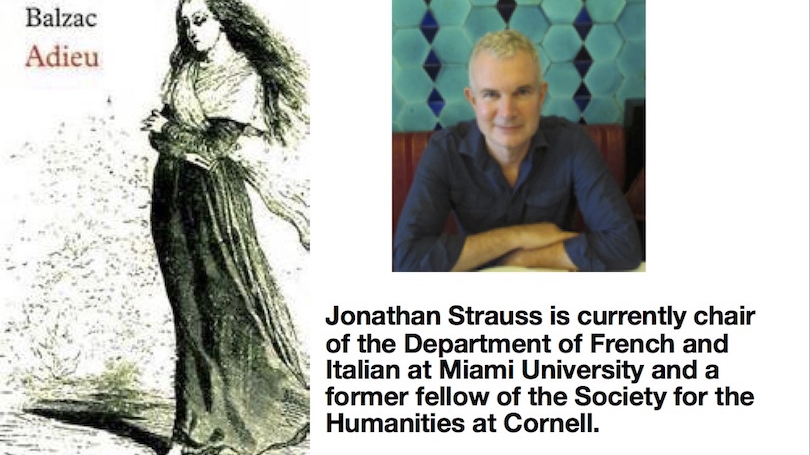
- About
- Humanities Networks
- Faculty
- Students
- Postdocs
- News & Events
Back to Top Nav
Back to Top Nav
Back to Top Nav
Back to Top Nav
Jonathan Strauss is currently chair of the Department of French and Italian at Miami University and a former fellow of the Society for the Humanities at Cornell. His work in the fields of nineteenth- and twentieth-century French literature and intellectual history frequently engage with the problems, issues and aporetics of thinking literature at the crossroads and thresholds of continental philosophy, critical theory, psychoanalysis and cultural studies. Among his publications are works on style, subjectivity and mortality in Nerval (Subjects of Terror); a cultural and aesthetic genealogy of modern notions, concepts and discourses of finitude (Human Remains: Medicine, Death, and Desire in Nineteenth-Century Paris); and a study of the enduring critical and political legacy of Sophocles’ Antigone in the age of terror, from Hegel to Lacan and Butler (Private Lives, Public Deaths). His new book project proposes that we think of literature as a core site where individual and collective relations to self, to others, to history and to environment are created, perceived, and contested. The work he will be sharing with us on the 14th is a tour de force reading from this work-in-progress of the poetics of speechlessness and problems of memory, history, and trauma in a short-story by Balzac ("Adieu").